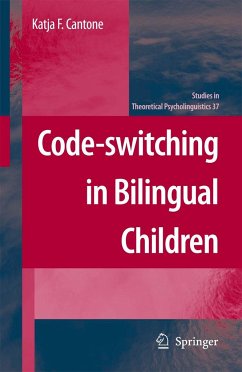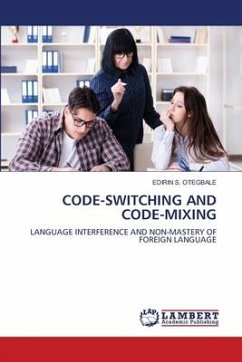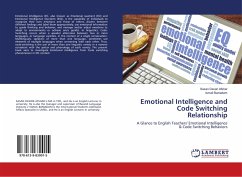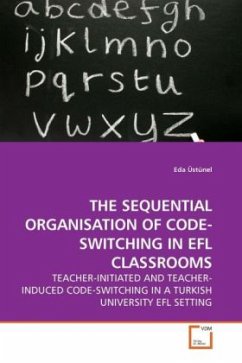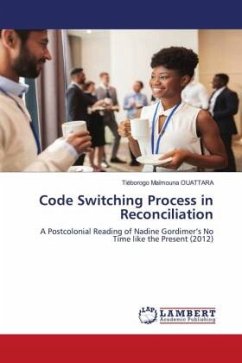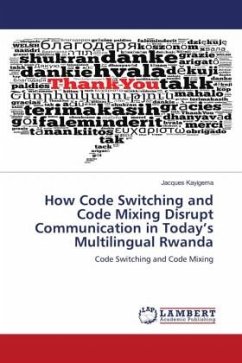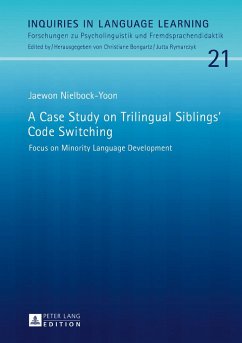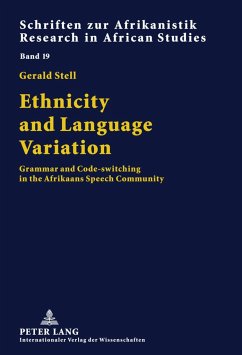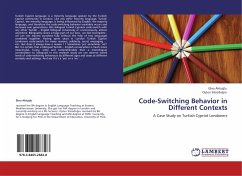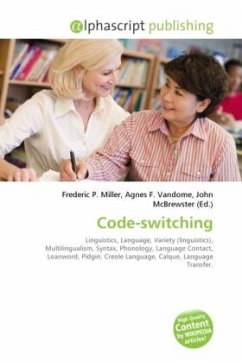
Code-switching
Versandkostenfrei!
Versandfertig in 6-10 Tagen
30,99 €
inkl. MwSt.

PAYBACK Punkte
15 °P sammeln!
Code-switching is a linguistics term denoting the concurrent use of more than one language, or language variety, in conversation. Multilinguals, people who speak more than one language, sometimes use elements of multiple languages in conversing with each other. Thus, code-switching is the syntactically and phonologically appropriate use of more than one linguistic variety. Code-switching is distinct from other language contact phenomena, such as borrowing, pidgins and creoles, loan translation calques, and language transfer language interference. Speakers form and establish a pidgin language w...
Code-switching is a linguistics term denoting the concurrent use of more than one language, or language variety, in conversation. Multilinguals, people who speak more than one language, sometimes use elements of multiple languages in conversing with each other. Thus, code-switching is the syntactically and phonologically appropriate use of more than one linguistic variety. Code-switching is distinct from other language contact phenomena, such as borrowing, pidgins and creoles, loan translation calques, and language transfer language interference. Speakers form and establish a pidgin language when two or more speakers who do not speak a common language form an intermediate, third language. On the other hand, speakers practice code-switching when they are each fluent in both languages. Code mixing is a thematically related term, but the usage of the terms code-switching and code-mixing varies.



